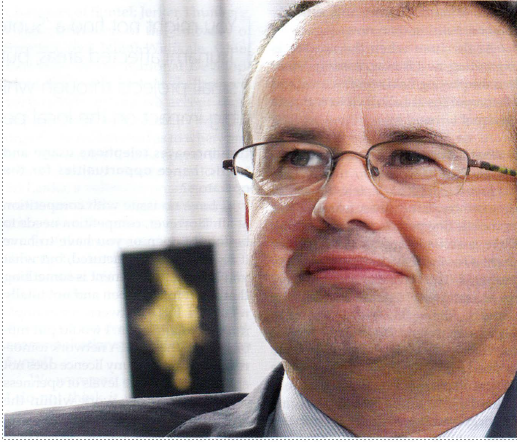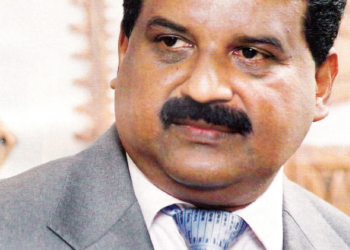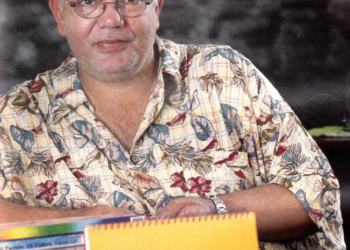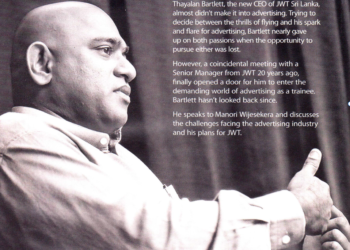Jerry Huxtable, Managing Director of Suntel explains in an interview with Business Today the reasons for Suntel pitching to be the fifth player in Sri Lanka’s lucrative mobile phone sector. Huxtable also discusses the effects of the deregulation of the telecommunications sector and how broadband voice and data services are leading Suntel inevitably into the future.
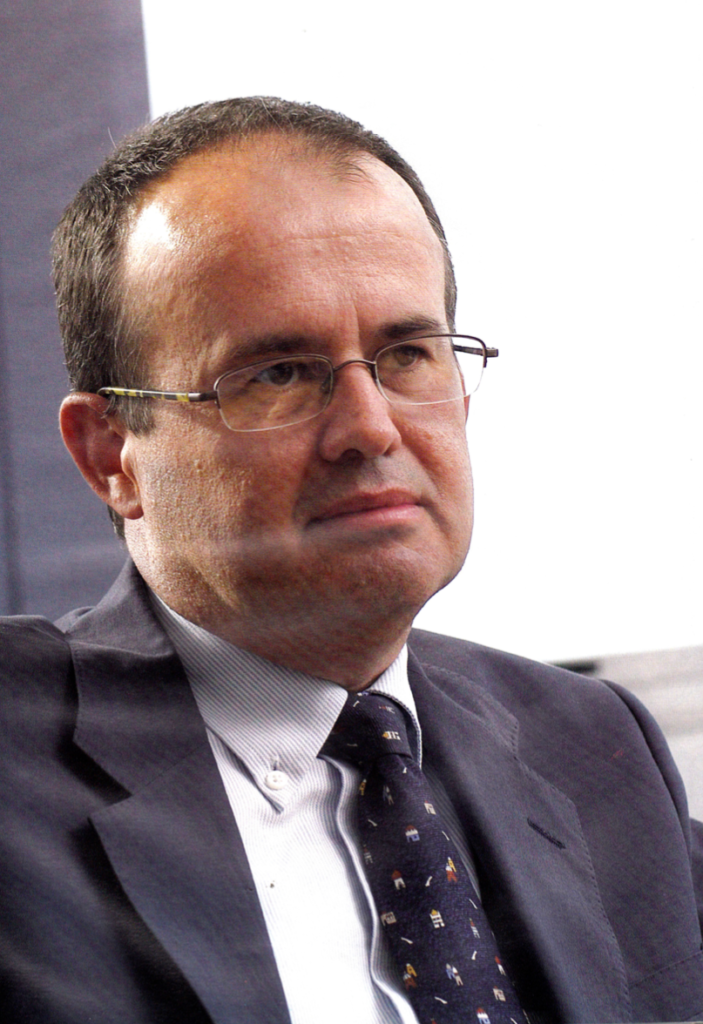
Considering your original business plan at the time when Suntel entered Sri Lanka, could you comment on Suntel’s’ performance so far?
I think the company has fulfilled what it was originally aiming to do. Originally there were issues with early technologies and the management at that time did a very good job of turning Suntel into a strong corporate niche player, providing solutions to corporate customers. The original idea was that the company was to be part of the growth in the residential market and the increasing tele-density in the country, but at the time the technology was not available to do that in a cost effective manner. ow we have the CDMA (Code division multiple access) frequencies, we can move towards the original plan, which was to be a full service company providing corporate and residential voice and data solutions and services.
Suntel’s tagline reads ‘your telecom partner for life.’ Is this tag line appropriate in the present context of your business, where a higher proportion of your business is with the corporate sector?
In the context of where we are, we have many strong long-term relationships with our corporate clients, most of them have been with us for many years. We hope to repeat that, through the quality of service we offer,.. in ‘the residential segment of the market. Whatever we do, we try and define ourselves not just by price but also by the quality of service we provide, giving us a very strong value for money proposition. I think this makes us different in the residential market when compared to some of our competitors. We have very good value for money products, we spend a lot of time and effort making sure we are able to service our customers with the same passion that we sell our products to them. I think that the fact we retain a lot of customers even in a very competitive environment, shows our commitment to our customers over and over again.
Corporate Social Responsibility (CSR) is a buzzword in today’s corporate sector. Tell us about Suntel’s CSR activities?
In terms of behaving in a socially responsible way we have done a number of things particularly in recent times. We don’t talk about them too much! For example we have a Tsunami relief fund totalling Rs75 million. Up to date we have donated Rs40 million to various relatively small relief projects, focusing on livelihood and community development programmes throughout the country. We also spend part of our advertising budget on community projects such as providing street signs. Yes, we do get some benefit in terms of visibility but then we also have several hoardings around the city. Putting up a street sign on the other hand adds value to the community. From Colombo if you were to drive all the way down south to Bentota you would see the Suntel road signs. We try to behave in a socially responsible way, as best as we can.
You might not find a ‘Suntel village’ in the Tsunami affected areas, but you will find lots of small projects through which we believe we can make a big impact on the local people.
How did you utilise the Tsunami funds and how did you ensure the money went to the right hands and that it was accounted for?
We have done a number of small projects and are actually the first private organisation to partner with the UNDP in a project, a Sri Lankan first. We are working very closely with Rebuild Sri Lanka and they have been one of the big channels through which we have found projects to utilise our money. You might not find a ‘Suntel village’ in the Tsunami affected areas, but you will find lots of small projects through which we believe we can make a big impact on the local people. In Harabadua in the Galle district we have supplied funds to more than 100 small and medium sized businesses as well as helping Professor Harendra de Silva’s Varum Sri Lanka NGO with their work in the community with children and young people. We have someone who coordinates the trust for us in addition to four trustees: myself, Dinesh Ambani, Vice Chairman of Suntel; Jerker Thunberg, Head of Mission of the Embassy of Sweden, and Nihal Welikala, Chief Executive of the National Development Bank. We look at the projects very closely before we accept them and we check very carefully with the organisations involved as to where and how the money will be spent. That is why we work so closely with Rebuild Sri Lanka, a volunteer organisation, so we can avoid any large administrative costs taken from our funds. Thus as much of the money as possible will go directly to clearly identified projects and families. We are very proud of the work we do.
How has the deregulation of the telecommunication sector impacted upon Suntel?
We were part of the deregulation! I do not think it necessarily had an impact on us. Our licence and Lanka Bell’s licence were issued at roughly the same time. I think we have to look at the regulatory regime, there is a reasonable amount of competition. However, at the same time, too many players in the market can inhibit investment and ultimately sustainable competition. One has to be careful about how many players are brought into the market. That’s because with so many players, you may actually receive less investment in the areas the country needs.
Telecommunications is a capital intensive business, so if you have six or seven people all trying to spend the same an1ow1t of money at the same time sometimes it does not work as well as if you have a more structured approach to deregulation and competition. At the moment the regime is working fairly well. However, the next stage to look at is what may happen maybe tw9 or three years down the line. One of the dangers of having a large number of competitors, as we have in the market now, is that among those competitors there are a few strong players who dominate. The question is whether you end up with one or two dominant players and actually less competition than now. At the time when the market is expanding, as it is now, it is important that the playing field remains level and all companies are allowed to compete on equal terms.
What is Suntel’s analysis of the competition?
I tend to look at the tele-density of the country rather than from a fixed or mobile line perspective, and I think there is still a long way to go. Hence there is room for all of the players here as there is this long way to go to have an acceptable tele-density within the country. Going forward, we want to become more and more a full service telecom operator, that is why we have applied for the fifth mobile licence. We look at all the different segments available – be it fixed, mobile or corporate services and increasingly broadband data, which I think is the next big development.
Fixed line penetration in rural markets is still relatively poor compared to the Greater Colombo and metropolitan regions?
That is part of the problem when you have a lot of players, they will all rush to the place where it is the easiest to gain customers. There is also an imbalance in the economic development of Sri Lanka comparing the Western Province with the rest of the country, so obviously the first place where somebody will look is in the Western Province or the four main towns of the country. This is why there is such a disparity between the levels of penetration in Colombo and the rest of the country. The good thing about CDMA technology is that Suntel has taken the opportunity to build a very comprehensive island wide network in a relatively short period of time and to try and take advantage of the fact that there is opportunity outside Colombo. It was difficult for anybody to do this earlier, because the cost per line of deploying in those areas was prohibitive, but with CDMA the cost per line is much less and is much easier to do.
More competition could also lead to a higher penetration level, which in turn increases telephone usage and traffic, hence opportunities for the operators? I have no issue with competition at all. However, competition needs to be totally open or you have to have it regulated and structured, but what you have at the moment is something that is not totally open and not totally regulated. It is in between, for example if it was totally open, I would put mobility onto the CDMA network tomorrow but I cannot as my licence does not allow it, so there are levels of openness if you like and we work within the structure of the licence we have and the constraints of that licence. There could be more competition; there is no doubt about that.
Some say that the mobile telephony sector is already crowded, and you too say that there should be an optimal number of operators for the industry to succeed and the country to benefit from deregulation. In this backdrop what is your rationale behind applying for the fifth mobile licence in the country?
We want to become a full service operator, so in order for us to compete effectively in the market we need to be able to offer mobile services particularly to our corporate customers. Given the restrictions of our licence this is one way to achieve that. Allowing mobility in our CDMA network would be another but that is not an option on offer from the TRC. In addition I believe there is room for another competitor in the GS market, particularly a company that has a good brand image and a good understanding of the market. Dialog has a market share that is equivalent to the old state monopolies in many ways, so there is room to compete; no doubt about that. Also mobile penetration is still relatively low, around 17%. There is still a long way to go in increasing tele-density and it is a good opportunity particularly for companies like ours where we can get a fair number of synergies from the operation that we already run, thus we don’t have to start from scratch.
Capturing the untapped 83% of the mobile telephony market is possible only through a vast geographic cover requiring high investment because of the need for a large infrastructure, particularly for GSM technology. Have you considered the cost-benefit issues?
That is the challenge. We have seen it with the CDMA network. The GSM network is another challenge and there is no doubt about that because the spectrum available for the GSM network means we have to build more base stations for a similar level of coverage to our CDMA network. If you believe that the country will continue to grow and the economy will continue to grow, there is an opportunity and the investment justified. There is no reason for concern, assuming the country does not head back to full scale civil war for example, at the moment the business case is ok particularly as we already have a very successful business that operates extremely efficiently. I am not sure that I would be so positive if Suntel was a completely new player coming into the market for the first time.
When comparing the service offers of the various main operators there is hardly much to choose between. What in your view is your edge?
We have a strong brand, it is a brand that is strongest in the Western Province where the largest proportion of high value customers are. We have attained Superbrand status, which is an independent recognition of our brand value. Secondly we have a reputation for good quality service, and I believe that you can define a business not purely on price, but on value for money and service. There is no reason why Sri Lanka should accept lower levels of service than you would expect to find in other parts of the world. You have to make sure your prices are competitive and as long as you are in the ballpark from the price point of view, people are interested in receiving a good service and being associated with a company that has a strong and good image. Here is where I think we score, research shows that we score very well in terms of customer satisfaction.
Under the current telecommunication regulations interconnection between networks of different operators is a major issue. What is your position on this?
We still have a basic interconnection regime where sender keeps all. In a competitive regime, such as the one we are in, if you are a smaller operator and you have big operators in the market then what would normally happen. is that the regulator, in order to ensure competition in the market, gives beneficial interconnection rates to the smaller operator. For example, this would mean the price Suntel would pay for terminating a call at SLT (Sri Lanka Telecom) or Dialog, who are both significantly bigger than us in terms of lines, would be considerably less than the amount that they would pay to Suntel for terminating a call into our network. Thus over time, the smaller operators are nurtured and allowed to grow and become more competitive. There really has to be, in the future, some sort of interconnection regime that operates fairly and recognises the desire to ensure long term competition. This model is common in Europe.
You have had problems with the international gateway, is it still an issue?
The problem is still there, it still exists and the industry itself has to come to terms with it and there has to be more cooperation between the operators. That is the only way that you can really solve the issue; it costs operators a lot of money. In the past it probably was a lot worse than it is now, but I think there is still a need to do more as an industry to try and stop it.
100 (International Direct Dialing) is a big part of your revenue – has technology like VoIP (Voice over Internet Protocol) and the Internet affected your 100 business?At the moment it is too early to say that but I think it has the effect of reducing the rates. As you get a greater spread of broadband facilities across the country, it will have more of an impact. However, it is a long way from being at the stage where everybody is going to go online and use the internet and various applications to make international calls. We have to embrace and anticipate change, you cannot just try and hide from it and we must be sure we have the infrastructure in place to benefit from the change.
What broadband access technologies do you use?
We currently use various wireless access technologies. We will contiitue· this, probably moving to WiMax (Worldwide Interoperability for Microwave Access) eventually. There are a number of different products and a number of different frequencies that can provide cost effective broadband services.
Suntel is a joint venture between Overseas Telecom AB of Sweden, Metrocorp, Townsend of Hong Kong, The National Development Bank and International Finance Corporation. How does your complex ownership structure affect the way you do business and are there plans for an IPO sometime in the future, as some of the present owners may wish to exit?
The shareholding in this company is not that complex, I don’t think it has ever really been a huge issue. If this were a company with major shareholding problems it would not be as successful as it is. We have strong local and international investment components. With regard to the IPO, it is a shareholder issue and not for me to comment. The value of the company is increasing, the subscriber base is growing by 15,000 subscribers a month. Year on year revenue is growing extremely rapidly so now is the time for us to continue to invest. This is the best way to give the shareholders the opportunity to get maximum value from their investment.
How does Suntel approach innovation and creativity in offering products, solutions and services?
We look at the different market segments that are present – the corporate segment, smal businesses and single owner small businessmen, residential. Somewhere between the corporate and the residential, is the high-end residential segment. To these four segments we intend providing specific services that range from simple voice and SMS services that we currently offer now to more data and broadband services. At the sophisticated corporate end we will provide managed services. Using the same cost structure we can expand into the residential market and we will look at supplying broadband data services to this sector. We also have a very strong asset in our ‘wOw’ brand and web site that we currently do not exploit, but there is good opportunity to develop and exploit this as the broadband infrastructure develops.
Your perspective on the progress of the Sri Lankan telecommunication sector?
The development could have been much faster. When I came back to Sri Lanka I was a bit surprised that it had not developed rapidly. Mobile services were introduced to Sri Lanka very early so I was surprised to see the penetration rates that exist. Dialog has done a reasonable job, but still I think there could have been faster growth with more competition. To the outsider it appears that Dialog got an easy ride as the other mobile operators were very passive and took time to invest in GSM technology and coverage, but Dialog have done a good job of building a good company The fixed lines were hampered by some of the technology issues that Suntel faced and it is only really now that it is beginning to grow as it should, driven by competition. I remember when I was here before SLT had a wireless local loop licence but failed to exploit it, it was only after Suntel and Lanka Bell launched CDMA that SLT moved into the wireless local loop market. This surprises me, you would have expected some of these things to happen sooner as the technology has been there for a while; CDMA has been around for as long as GSM.
You are no stranger to Sri Lanka -you have been the CEO of a mobile telephone operator in Sri Lanka through your earlier association with Millicom International Cellular. You are actually credited for introducing prepaid mobile telephony to Sri Lanka and Asia. You also have held previous positions with other international mobile telephone operators, and with Internet Services companies working with many countries. In this era of convergence how do you think you can put all this knowledge and experience to work at Suntel?
There is a lot of focus on convergence. If you look at what is happening around the world today that is becoming reality. Vodaphone for example -who for years and years was held up as a shining example as it was mobile only and really focused – are now looking to enter the broadband market to offer converged services. The market and analysts are now saying that being only mobile is a weakness. Increasingly, those companies that will be successful will be those who own the broadband route into the home. That is the key, through that you will see telcos offering bundled services. During my time at Orange, I was part of the France Telecom (owners of Orange) project looking at converged services and today they offer broadband Internet, voice, TV and mobile services all on one bill into one home. In the future VoIP, will become increasingly the way voice is carried, therefore if you own the broadband connection you own quite a lot.
How do you plan to position Suntel over the next few years?
We are trying to position Suntel as a company that offers value for money and good quality service and this is what I would like the company and brand to stand for. We will offer voice and data services across all key market segments. This is the challenge for us as we move from an extremely successful corporate solutions provider to an extremely successful full service telecommunications company.
